Cooper Series Announces 2023-24 Slate
The Cooper Series returns for the 2023-24 academic year with 10 artistic events, including a monthlong celebration of hip-hop’s 50th birthday, a lecture by the author of Braiding Sweetgrass, and an exhibition of banned comics in McCabe Library.
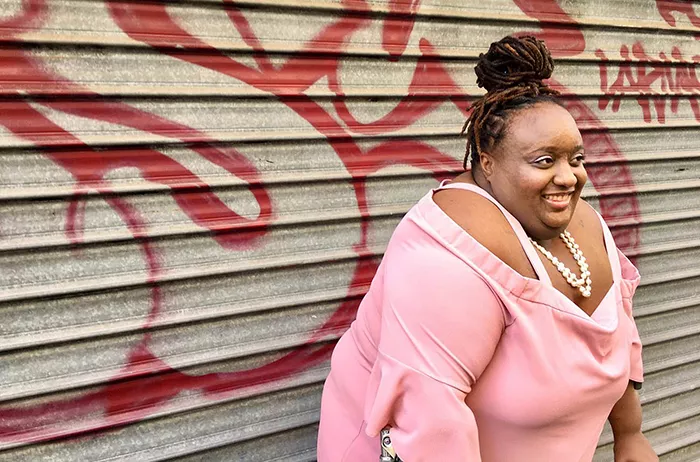
Using her perspective as a Black disabled woman, Imani Barbarin has worked to advocate for the disabled community through her writing and social media platforms.
The series begins Tuesday, Oct. 3, with a discussion on Disability, Identity, and Civil Rights lead by Imani Barbarin.
This event will explore disability as a dimension of intersectional identity. Barbarin will discuss her perspective on the overarching question: “What does it mean to be disabled?” Barbarin works to “investigate different axes of oppression and marginalization in order to facilitate a society that works for us all.” She has, using her perspective as a Black disabled woman, worked to advocate for the disabled community through her writing and social media platforms.
The discussion will take place in the Science Center Room 199 at 7:30 p.m. on Oct. 3.
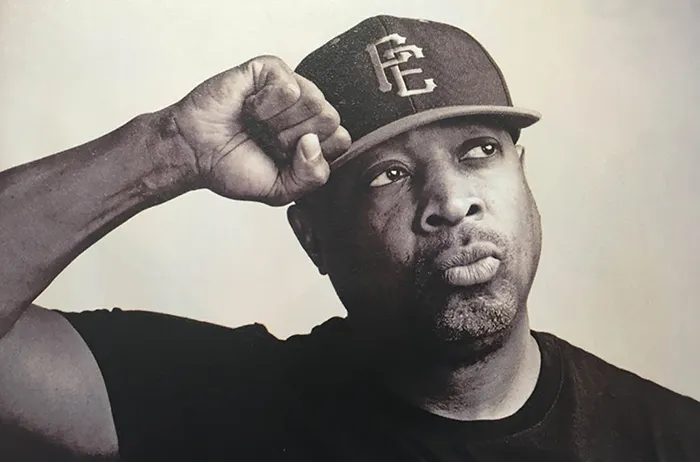
On Oct. 6, Chuck D of Public Enemy will joing KRS-One and Wise Intelligent to discuss cultural sustainability and political resistance, followed by a talent exhibition with all three artists.
Next, we’re celebrating the 50th anniversary of hip-hop with a series of three events: each one featuring a panel by hip-hop luminaries followed by performances by emcees and dancers. All events will take place in Pearson-Hall Theatre in the Lang Center for Performing Arts.
Friday, Oct. 6, musical legends Chuck D, KRS-One and Wise Intelligent discuss cultural sustainability and political resistance, followed by a talent exhibition with all three artists joined by renowned hip-hop dance company Urban Artistry. The panel discussion starts at 7 p.m. and the performance starts at 8:30 p.m.
Saturday, Oct. 28, dance takes center stage in Cooper’s second celebration of hip-hop’s 50th anniversary, with a panel discussion followed by dance performances by icons Ken Swift, Kwikstep and Rokafella, Rennie Harris and PureMovement, and the Ladies of Hip Hop and Just Sole! dance companies, in conversation with foundational DJ Grand Mixer DXT. The panel discussion starts at 7 p.m. and the performance starts at 8:30 p.m.
Friday, Nov. 3, our closing event, featuring hip-hop luminary Talib Kweli and the renowned hip-hop dance crew MOPTOP (Buddha Stretch, Ejoe Wilson, Caleaf Sellers, ChryBaby Cozie) rounds out our celebration of hip-hop’s political, social, and cultural impacts and future arc. The panel discussion starts at 7 p.m. and the performance starts at 8:30 p.m.
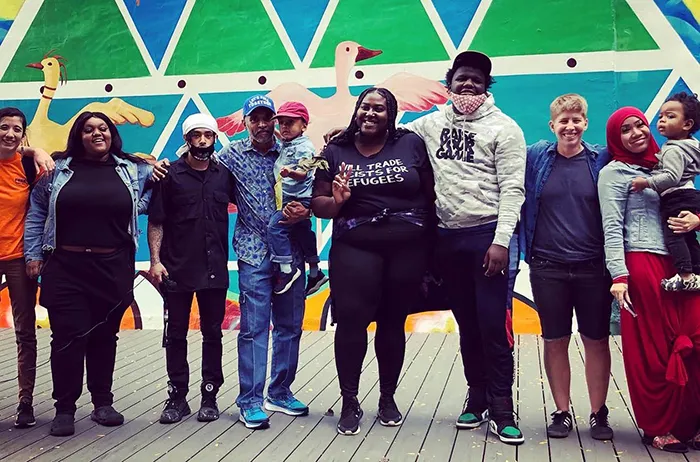
The symposium will not only focus on the devastating impacts of the carceral state, but it will also highlight work that builds hope and mitigates harm, increases the capacity of communities to wage a more effective fight, and prepares the way for incarcerated people to return home as welcome contributors to their communities.
The programming continues with About Time: Abolishing the Carceral State, composed of a film screening on Thursday, Oct. 26 from 4:15 - 7 p.m. in the Lang Performing Arts Center Cinema, and a symposium on Friday, Oct. 27 from 9 a.m.-4 p.m. in the Intercultural Center Dome, Sproul 201.
The symposium will not only focus on the devastating impacts of the carceral state, but it will also highlight work that builds hope and mitigates harm, increases the capacity of communities to wage a more effective fight, and prepares the way for incarcerated people to return home as welcome contributors to their communities.

In her acclaimed comic book series, SfSx (Safe Sex), Tina Horn captures a dystopian America of the future, in which sexuality is severely bureaucratized, policed, and criminalized by a conservative political group known as The Party.
Next, celebrate spooky season with queer, feminist writer and media maker Tina Horn, who explores sex, censorship, and much more through her “Monster Smash” workshop and keynote, “Shadowbanned Nation: The Lust, Labor, and Genders THEY Don’t Want You to Read About!”
In her acclaimed comic book series, SfSx (Safe Sex), Horn captures a dystopian America of the future, in which sexuality is severely bureaucratized, policed, and criminalized by a conservative political group known as The Party. SfSx offers a critical perspective on the cost of safety, assimilation and survival, sexual freedom, censorship and deviance, passing privilege, and experiences of joy and pleasure in the face of marginalization and oppression.
Horn’s keynote lecture, Thursday, Nov. 2, from 4:30 to 6 p.m. in SCI 101, Chang Hou Hall, will touch upon the topics of printing and publishing sexual material, censorship, sex work as work, and comics as a political medium, with the SfSx comic series as a central component. The workshop, Tuesday, Oct. 31, from 7 to 9 p.m. in the Scheuer Room, will explore how to navigate darker fantasies safely by expressing boundaries and giving (or not giving) consent.
Don’t miss the accompanying library exhibit, “CENSuality: Gender and Sexuality in an Age of Censorship” on the second floor of McCabe Library from Oct. 3 to Nov. 26.

Born in 1968 in Trinidad and Tobago, Karyn Olivier is an artist who transforms ordinary objects and public spaces.
Wednesday, Nov. 1, artist Karyn Olivier will be on campus to give a lecture on her exhibition, Seep. The lecture, in the LPAC Cinema from 4:30 to 5:30 p.m., will be followed by a reception in the List Gallery from 5:30 to 7 p.m. Seep will be on exhibit in the List Gallery from Nov. 1 until Dec. 15.
Born in 1968 in Trinidad and Tobago, Olivier is an artist who transforms ordinary objects and public spaces. Often repurposing materials from the waste stream, her sculptures and installations engage viewers with a range of issues, including the plight of international refugees, the legacy of slavery, the role of public monuments, and unsustainable construction practices. Her works can be simultaneously poignant and whimsical, inviting viewers to reconsider their relationships to history and the built environment.
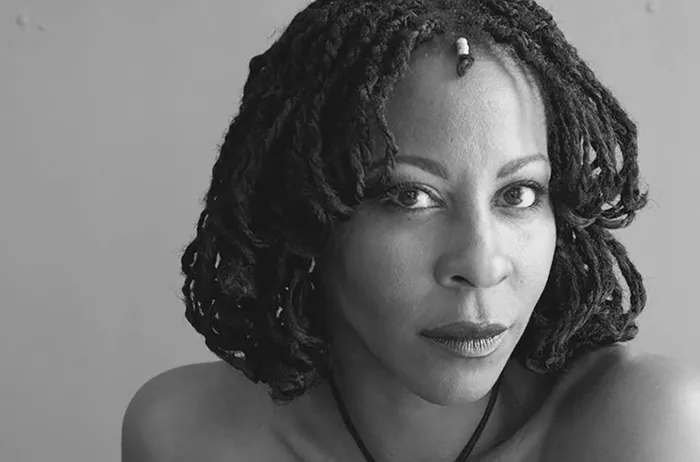
Theresa Ruth Howard is the international advocate and strategist behind the movement to reform the culture of ballet.
Also on Thursday, Nov. 9, founder and curator of “Memoirs of Blacks in Ballet” Theresa Ruth Howard will be on campus for a lecture followed by a discussion in the Intercultural Center Dome, Sproul 201.
Howard is the international advocate and strategist behind the movement to reform the culture of ballet. Her lecture “Ballet and Belonging: A Conversation with Activist Diversity and Cultural Strategist Theresa Ruth Howard (Cultural Competency in Ballet)” will examine the ways in which institutionalized racism and implicit bias present in ballet and also the contributions of Blacks in ballet. Howard shares how tapping into the avant-garde and radical origins of the form can make the organic case for its evolution into an equitable, inclusive, culturally competent, and healthier art form.
Earlier in the day in the Underhill Seminar Room, Howard will engage in discussion with students around “The Constellation Project: Mapping the Dark Stars of Ballet,” a digital installation that chronicles the lives and careers of dancers Arthur Mitchell, Mel Tomlinson, Lavina Williams, Mable Freeman, Doris Jones, and Claire Haywood, and brings to light the connections between them and the other artists, institutions, and white allies who were in their orbit.

Choreographer Abby Zbikowski and crew have created, in “Radioactive Practice,” a genre-bending work that brings together a mosaic group of dancers to redefine purpose for themselves as they labor their way through complex, demanding, and often perplexing physicality as a means to confront expectations and dive into the unknown head-on.
Dance your way into 2024 with Abby Z & the New Utility. They’ll be on campus in January, offering master classes, a performance, and a film screening.
Choreographer Abby Zbikowski and crew have created, in “Radioactive Practice,” a genre-bending work that brings together a mosaic group of dancers to redefine purpose for themselves as they labor their way through complex, demanding, and often perplexing physicality as a means to confront expectations and dive into the unknown head-on.
Utilizing the skills they have honed through their practices in movement traditions including (but not limited to) hip-hop, post-modern dance, contemporary African forms, tap, synchronized swimming, soccer, and martial arts, the cast draws from an arsenal of physical possibility to shatter assumptions of established forms and test the group’s own physical and mental limits. Working with Senegalese dance artist Momar Ndiaye as dramaturge, this work embodies the amalgam of contemporary living.
The cast features Alex Gossen, Kashia Kancey, Fiona Lundie, Jennifer Meckley, Benjamin Roach, and jinsei sato. Original music by Matthew Peyton Dixon.
The master classes will be offered Wednesday, Jan. 24 and Thursday, Jan. 25 in LPAC’s Troy Dance Studio. The film screening will be Wednesday, Jan. 24, from 4:30 to 6 p.m. in the LPAC Cinema. The group will perform Saturday, Jan. 27 at 8 p.m. in LPAC’s Pearson-Hall Theatre.

This event explores the ways in which the character and degree of anti-Muslim discrimination is shaped by both external and complex intracommunal dynamics among Muslims across ethnicities and geographies.
On Feb. 2, don’t miss an all-day event on Race, Religion, and Anti-Muslim Discrimination in the LPAC Cinema from 9 a.m. to 6 p.m.
Anti-Muslim violence, discrimination, and surveillance exists as transnational phenomena. This event explores the ways in which the character and degree of anti-Muslim discrimination is shaped by both external and complex intracommunal dynamics among Muslims across ethnicities and geographies.

These events showcase Africa’s dynamic trajectory and foster collaborations for sustainable development. With two main themes — the power of civil society in fighting humanitarian crises and charting Africa’s future — the symposium will feature renowned speakers, engaging workshops, and innovative programming.
Later in Black History Month, check out a two-day symposium on Africa’s future: Africa Is Rising. These events showcase Africa’s dynamic trajectory and foster collaborations for sustainable development. With two main themes — the power of civil society in fighting humanitarian crises and charting Africa’s future — the symposium will feature renowned speakers, engaging workshops, and innovative programming.
Participants can expect an immersive experience that celebrates Africa’s progress, inspires collective action, and drives meaningful change across such sectors as inclusive growth, entrepreneurship, technology, and cultural heritage.
The symposium will take place Friday, Feb. 9, from 2:30 to 8 p.m. in LPAC’s Pearson-Hall Theatre, and Saturday, February 10, from 12 p.m. to 8:30 p.m. with sessions in Lang Performing Arts Center, Kohlberg Hall, and Singer Commons.
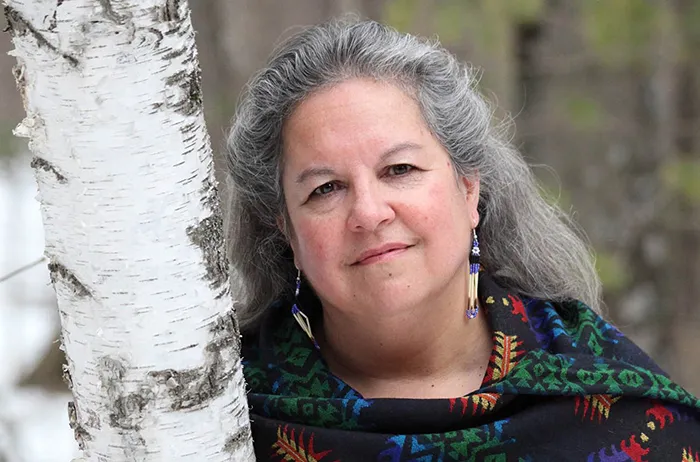
Robin Wall Kimmerer will focus on ways Indigenous knowledge might contribute to a transformation in how we view our relationship to consumption, and move us away from a profoundly dishonorable relationship with the Earth.
Professor Robin Wall Kimmerer, author of New York Times bestseller Braiding Sweetgrass: Indigenous Wisdom, Scientific Knowledge, and the Teachings of Plants will be on campus for a lecture and discussion of her work on April 1 and 2.
Wall Kimmerer will focus on ways Indigenous knowledge might contribute to a transformation in how we view our relationship to consumption, and move us away from a profoundly dishonorable relationship with the Earth.
This discussion will explore the dominant themes of Braiding Sweetgrass, which include cultivation of a reciprocal relationship with the living world. In a faculty-facilitated Q&A session with the author, participants will be invited to consider what we might learn if we understood plants as our teachers, from both a scientific and an Indigenous perspective.
The events will take place April 1 from 4:30 to 6:30 p.m. in LPAC’s Pearson-Hall Theatre, and April 2, from 8:30 to 10:30 p.m. in the Kolhberg Hall Scheuer Room.
The William J. Cooper Foundation provides a varied program of lectures, performances, and exhibitions that enrich the academic life of the College. The foundation was established by William J. Cooper, who specified that the income from his gift should be used “in bringing to the College eminent citizens of this and other countries who are leaders in statesmanship, education, the arts, sciences, learned professions, and business.”



